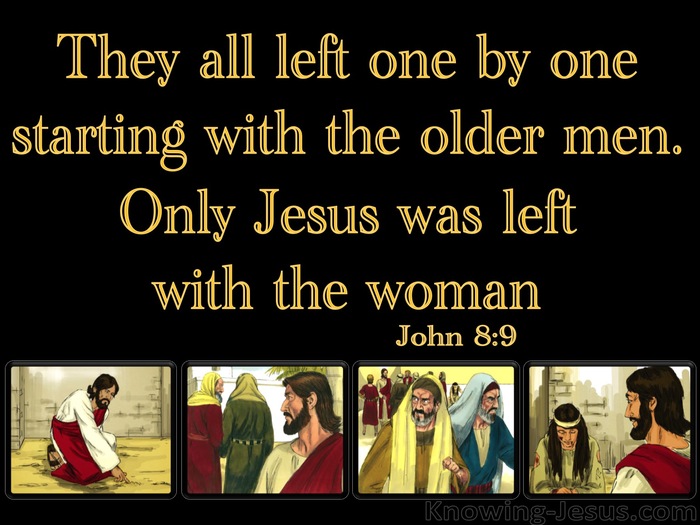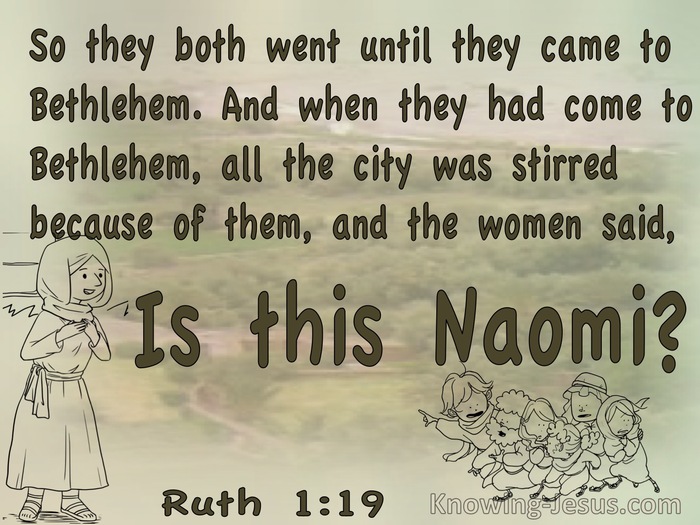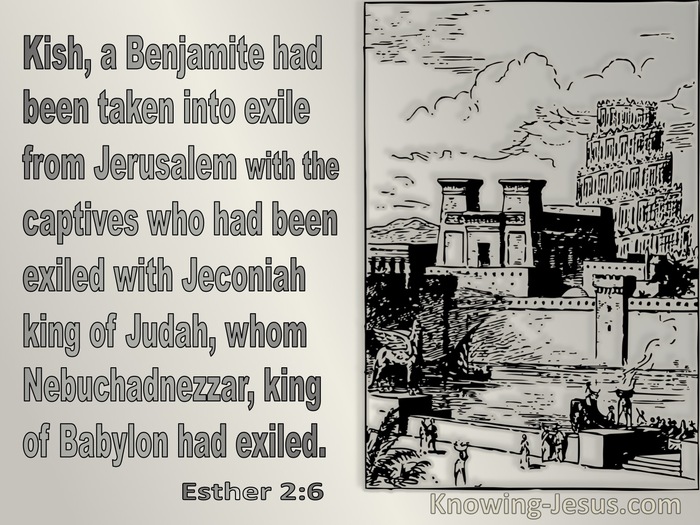26 Bible Verses about God's Mercy, Example Of
Most Relevant Verses
But he hesitated. Because of the Lord’s compassion for him, the men grabbed his hand, his wife’s hand, and the hands of his two daughters. Then they brought him out and left him outside the city.
Indeed, he was so sick that he nearly died. However, God had mercy on him, and not only on him but also on me, so that I would not have one grief on top of another.
one who was formerly a blasphemer, a persecutor, and an arrogant man. But I received mercy because I acted out of ignorance in unbelief.
Now Joseph had been taken to Egypt. An Egyptian named Potiphar, an officer of Pharaoh and the captain of the guard, bought him from the Ishmaelites who had brought him there. The Lord was with Joseph, and he became a successful man, serving in the household of his Egyptian master. When his master saw that the Lord was with him and that the Lord made everything he did successful, read more.
Joseph found favor in his master’s sight and became his personal attendant. Potiphar also put him in charge of his household and placed all that he owned under his authority.
Now Joseph had been taken to Egypt. An Egyptian named Potiphar, an officer of Pharaoh and the captain of the guard, bought him from the Ishmaelites who had brought him there.
They said, “Joseph is still alive, and he is ruler over all the land of Egypt!” Jacob was stunned, for he did not believe them. But when they told Jacob all that Joseph had said to them, and when he saw the wagons that Joseph had sent to transport him, the spirit of their father Jacob revived. Then Israel said, “Enough! My son Joseph is still alive. I will go to see him before I die.”
And Isaac brought her into the tent of his mother Sarah and took Rebekah to be his wife. Isaac loved her, and he was comforted after his mother’s death.
Abram’s wife Sarai had not borne any children for him, but she owned an Egyptian slave named Hagar. Sarai said to Abram, “Since the Lord has prevented me from bearing children, go to my slave; perhaps through her I can build a family.” And Abram agreed to what Sarai said. So Abram’s wife Sarai took Hagar, her Egyptian slave, and gave her to her husband Abram as a wife for him. This happened after Abram had lived in the land of Canaan 10 years. read more.
He slept with Hagar, and she became pregnant. When she realized that she was pregnant, she treated her mistress with contempt. Then Sarai said to Abram, “You are responsible for my suffering! I put my slave in your arms, and ever since she saw that she was pregnant, she has treated me with contempt. May the Lord judge between me and you.” Abram replied to Sarai, “Here, your slave is in your hands; do whatever you want with her.” Then Sarai mistreated her so much that she ran away from her. The Angel of the Lord found her by a spring of water in the wilderness, the spring on the way to Shur. He said, “Hagar, slave of Sarai, where have you come from and where are you going?”
She replied, “I’m running away from my mistress Sarai.” Then the Angel of the Lord said to her, “You must go back to your mistress and submit to her mistreatment.” The Angel of the Lord also said to her, “I will greatly multiply your offspring, and they will be too many to count.” Then the Angel of the Lord said to her:
You have conceived and will have a son.
You will name him Ishmael,
for the Lord has heard your cry of affliction.
This man will be like a wild donkey.
His hand will be against everyone,
and everyone’s hand will be against him;
he will live at odds with all his brothers. So she called the Lord who spoke to her: The God Who Sees, for she said, “In this place, have I actually seen the One who sees me?” That is why she named the spring, “A Well of the Living One Who Sees Me.” It is located between Kadesh and Bered. So Hagar gave birth to Abram’s son, and Abram gave the name Ishmael to the son Hagar had. Abram was 86 years old when Hagar bore Ishmael to him.
Abram’s wife Sarai had not borne any children for him, but she owned an Egyptian slave named Hagar.
Then the Lord God said, “It is not good for the man to be alone. I will make a helper as his complement.”
When they heard this, they left one by one, starting with the older men. Only He was left, with the woman in the center. When Jesus stood up, He said to her, “Woman, where are they? Has no one condemned you?” “No one, Lord,” she answered.
“Neither do I condemn you,” said Jesus. “Go, and from now on do not sin anymore.”]
So Ruth left and entered the field to gather grain behind the harvesters. She happened to be in the portion of land belonging to Boaz, who was from Elimelech’s family.
The two of them traveled until they came to Bethlehem. When they entered Bethlehem, the whole town was excited about their arrival and the local women exclaimed, “Can this be Naomi?”
Ruth the Moabitess said, “He also told me, ‘Stay with my young men until they have finished all of my harvest.’”
Soon afterward He was traveling from one town and village to another, preaching and telling the good news of the kingdom of God. The Twelve were with Him, and also some women who had been healed of evil spirits and sicknesses: Mary, called Magdalene (seven demons had come out of her); Joanna the wife of Chuza, Herod’s steward; Susanna; and many others who were supporting them from their possessions. read more.
As a large crowd was gathering, and people were flocking to Him from every town, He said in a parable: “A sower went out to sow his seed. As he was sowing, some fell along the path; it was trampled on, and the birds of the sky ate it up. Other seed fell on the rock; when it sprang up, it withered, since it lacked moisture. Other seed fell among thorns; the thorns sprang up with it and choked it. Still other seed fell on good ground; when it sprang up, it produced a crop: 100 times what was sown.” As He said this, He called out, “Anyone who has ears to hear should listen!” Then His disciples asked Him, “What does this parable mean?” So He said, “The secrets of the kingdom of God have been given for you to know, but to the rest it is in parables, so that
Looking they may not see,
and hearing they may not understand. “This is the meaning of the parable: The seed is the word of God.
Soon afterward He was traveling from one town and village to another, preaching and telling the good news of the kingdom of God. The Twelve were with Him,
He entered Jericho and was passing through. There was a man named Zacchaeus who was a chief tax collector, and he was rich. He was trying to see who Jesus was, but he was not able because of the crowd, since he was a short man. read more.
So running ahead, he climbed up a sycamore tree to see Jesus, since He was about to pass that way. When Jesus came to the place, He looked up and said to him, “Zacchaeus, hurry and come down because today I must stay at your house.” So he quickly came down and welcomed Him joyfully. All who saw it began to complain, “He’s gone to lodge with a sinful man!” But Zacchaeus stood there and said to the Lord, “Look, I’ll give half of my possessions to the poor, Lord! And if I have extorted anything from anyone, I’ll pay back four times as much!” “Today salvation has come to this house,” Jesus told him, “because he too is a son of Abraham. For the Son of Man has come to seek and to save the lost.”
Then one of the Pharisees invited Him to eat with him. He entered the Pharisee’s house and reclined at the table. And a woman in the town who was a sinner found out that Jesus was reclining at the table in the Pharisee’s house. She brought an alabaster jar of fragrant oil and stood behind Him at His feet, weeping, and began to wash His feet with her tears. She wiped His feet with the hair of her head, kissing them and anointing them with the fragrant oil. read more.
When the Pharisee who had invited Him saw this, he said to himself, “This man, if He were a prophet, would know who and what kind of woman this is who is touching Him—she’s a sinner!” Jesus replied to him, “Simon, I have something to say to you.”
“Teacher,” he said, “say it.” “A creditor had two debtors. One owed 500 denarii, and the other 50. Since they could not pay it back, he graciously forgave them both. So, which of them will love him more?” Simon answered, “I suppose the one he forgave more.”
“You have judged correctly,” He told him. Turning to the woman, He said to Simon, “Do you see this woman? I entered your house; you gave Me no water for My feet, but she, with her tears, has washed My feet and wiped them with her hair. You gave Me no kiss, but she hasn’t stopped kissing My feet since I came in. You didn’t anoint My head with olive oil, but she has anointed My feet with fragrant oil. Therefore I tell you, her many sins have been forgiven; that’s why she loved much. But the one who is forgiven little, loves little.” Then He said to her, “Your sins are forgiven.” Those who were at the table with Him began to say among themselves, “Who is this man who even forgives sins?” And He said to the woman, “Your faith has saved you. Go in peace.”
As He drew near Jericho, a blind man was sitting by the road begging. Hearing a crowd passing by, he inquired what this meant. “Jesus the Nazarene is passing by,” they told him. read more.
So he called out, “Jesus, Son of David, have mercy on me!” Then those in front told him to keep quiet, but he kept crying out all the more, “Son of David, have mercy on me!” Jesus stopped and commanded that he be brought to Him. When he drew near, He asked him, “What do you want Me to do for you?”
“Lord,” he said, “I want to see!” “Receive your sight!” Jesus told him. “Your faith has healed you.” Instantly he could see, and he began to follow Him, glorifying God. All the people, when they saw it, gave praise to God.
Soon afterward He was on His way to a town called Nain. His disciples and a large crowd were traveling with Him. Just as He neared the gate of the town, a dead man was being carried out. He was his mother’s only son, and she was a widow. A large crowd from the city was also with her. When the Lord saw her, He had compassion on her and said, “Don’t cry.” read more.
Then He came up and touched the open coffin, and the pallbearers stopped. And He said, “Young man, I tell you, get up!” The dead man sat up and began to speak, and Jesus gave him to his mother.
In the days of King Herod of Judea, there was a priest of Abijah’s division named Zechariah. His wife was from the daughters of Aaron, and her name was Elizabeth. Both were righteous in God’s sight, living without blame according to all the commands and requirements of the Lord. But they had no children because Elizabeth could not conceive, and both of them were well along in years. read more.
When his division was on duty and he was serving as priest before God, it happened that he was chosen by lot, according to the custom of the priesthood, to enter the sanctuary of the Lord and burn incense. At the hour of incense the whole assembly of the people was praying outside. An angel of the Lord appeared to him, standing to the right of the altar of incense. When Zechariah saw him, he was startled and overcome with fear. But the angel said to him:
Do not be afraid, Zechariah,
because your prayer has been heard.
Your wife Elizabeth will bear you a son,
and you will name him John.
There will be joy and delight for you,
and many will rejoice at his birth.
For he will be great in the sight of the Lord
and will never drink wine or beer.
He will be filled with the Holy Spirit
while still in his mother’s womb.
He will turn many of the sons of Israel
to the Lord their God.
And he will go before Him
in the spirit and power of Elijah,
to turn the hearts of fathers
to their children,
and the disobedient
to the understanding of the righteous,
to make ready for the Lord a prepared people.
If you don’t tell me the dream, there is one decree for you. You have conspired to tell me something false or fraudulent until the situation changes. So tell me the dream and I will know you can give me its interpretation.”
In the fortress of Susa, there was a Jewish man named Mordecai son of Jair, son of Shimei, son of Kish, a Benjaminite. He had been taken into exile from Jerusalem with the other captives when King Nebuchadnezzar of Babylon took King Jeconiah of Judah into exile. Mordecai was the legal guardian of his cousin Hadassah (that is, Esther), because she didn’t have a father or mother. The young woman had a beautiful figure and was extremely good-looking. When her father and mother died, Mordecai had adopted her as his own daughter. read more.
When the king’s command and edict became public knowledge, many young women gathered at the fortress of Susa under Hegai’s care. Esther was also taken to the palace and placed under the care of Hegai, who was in charge of the women. The young woman pleased him and gained his favor so that he accelerated the process of the beauty treatments and the special diet that she received. He assigned seven hand-picked female servants to her from the palace and transferred her and her servants to the harem’s best quarters. Esther did not reveal her ethnic background or her birthplace, because Mordecai had ordered her not to. Every day Mordecai took a walk in front of the harem’s courtyard to learn how Esther was doing and to see what was happening to her. During the year before each young woman’s turn to go to King Ahasuerus, the harem regulation required her to receive beauty treatments with oil of myrrh for six months and then with perfumes and cosmetics for another six months. When the young woman would go to the king, she was given whatever she requested to take with her from the harem to the palace. She would go in the evening, and in the morning she would return to a second harem under the supervision of Shaashgaz, the king’s eunuch in charge of the concubines. She never went to the king again, unless he desired her and summoned her by name. Esther was the daughter of Abihail, the uncle of Mordecai who had adopted her as his own daughter. When her turn came to go to the king, she did not ask for anything except what Hegai, the king’s trusted official in charge of the harem, suggested. Esther won approval in the sight of everyone who saw her. She was taken to King Ahasuerus in the royal palace in the tenth month, the month Tebeth, in the seventh year of his reign. The king loved Esther more than all the other women. She won more favor and approval from him than did any of the other young women. He placed the royal crown on her head and made her queen in place of Vashti. The king held a great banquet for all his officials and staff. It was Esther’s banquet. He freed his provinces from tax payments and gave gifts worthy of the king’s bounty.
But I received mercy for this reason, so that in me, the worst of them, Christ Jesus might demonstrate His extraordinary patience as an example to those who would believe in Him for eternal life.
Bible Theasaurus
Related Topics
Never miss a post








